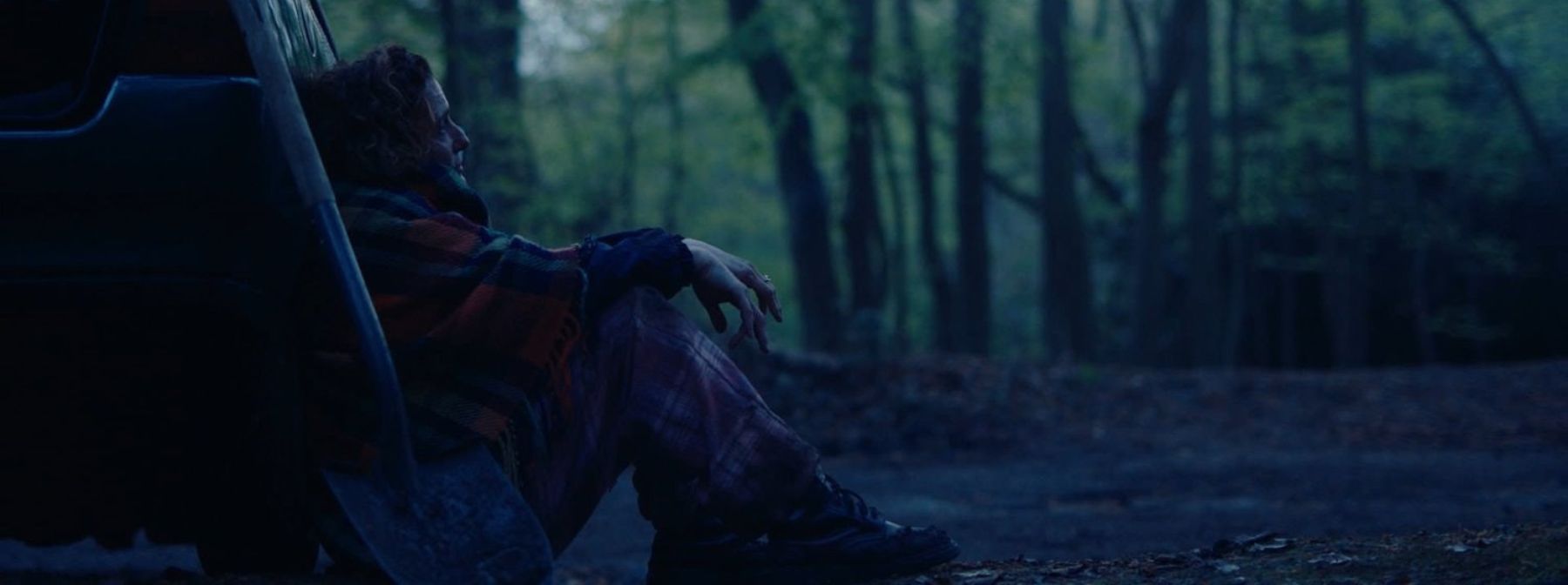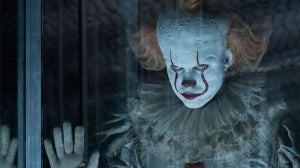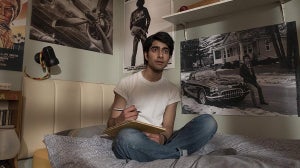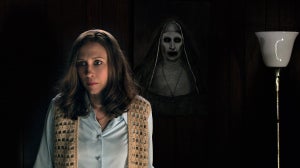
No matter where you live, you've probably had to deal with a neighbour keeping you awake all night with their loud music.
Director Jed Hart’s feature debut Restless is a psychological thriller inspired by his own disputes with a neighbour who didn’t know how to use the volume button on his home stereo system. The filmmaker managed to settle his dispute after endless arguments, but the desire to write a movie inspired by the situation arose after realising just how many people he knew had been through this exact same experience.
He told Zavvi: “The only way my experience with my neighbour is like the one in the movie is that I was also kept up until 4am, being forced to listen to their s**t music coming through the wall! When I started writing, the characters took on a life of their own, so the surrounding circumstances became very different, even though I did also have tit-for-tat battles with mine, trying to get them to turn their music off.
“I wanted to write a story that captured what it felt like to have your place of safety and solace turn into a torture chamber. It was a universal premise, and the more I spoke about it with people, I discovered this resonated a lot; every time I got feedback on the idea, somebody would tell me a new story about how they went through something like this themselves.”
With the story largely confined to the home of care worker Nicky (Lyndsey Marshal), we rarely see what happens on the other side of the walls, only ratcheting up her paranoia when her new neighbour Deano (Aston McAuley) gets increasingly mad as she pleads with him to turn the music down. The music is Deano’s main form of communication, and Hart knew the movie wouldn't work unless he found the most antagonistic, aggressive electronic tracks to score it with.
“The music was always key to the script, especially the contrast between the classical music Nicky listens to, and the most irritating dance music we could find on the other side. We spent a lot of time in post-production trying to find music that would put people on edge, but it’s not just the individual tracks; each consecutive song had to shift the pitch and BPM drastically, so you wouldn't be able to shut it out.

“No matter the volume, our brains can eventually block something out if it remains at a constant tempo, so that had to be avoided. We also never let the songs begin or end naturally, meaning the BPM will shift suddenly and leave you on edge; it becomes musical torture, like something you’d hear if you were imprisoned in Guantanamo Bay.”
With the music only added during post-production, Marshal had the difficult challenge of depicting her character’s psychological unravelling without hearing what was making her spiral within the moment. Luckily – if that is the right word – Hart helped her out by keeping her as separate from her co-star as possible, which helped build up the tension between their characters.
“But this wasn’t something that we planned, or even sat down to discuss, before we filmed”, he continued. “A lot of the time, Lyndsey is in the house by herself, acting against no one, with no real music; Aston was going a little method by staying away until the cameras rolled, and he could have the fun of poking the hornet’s nest.
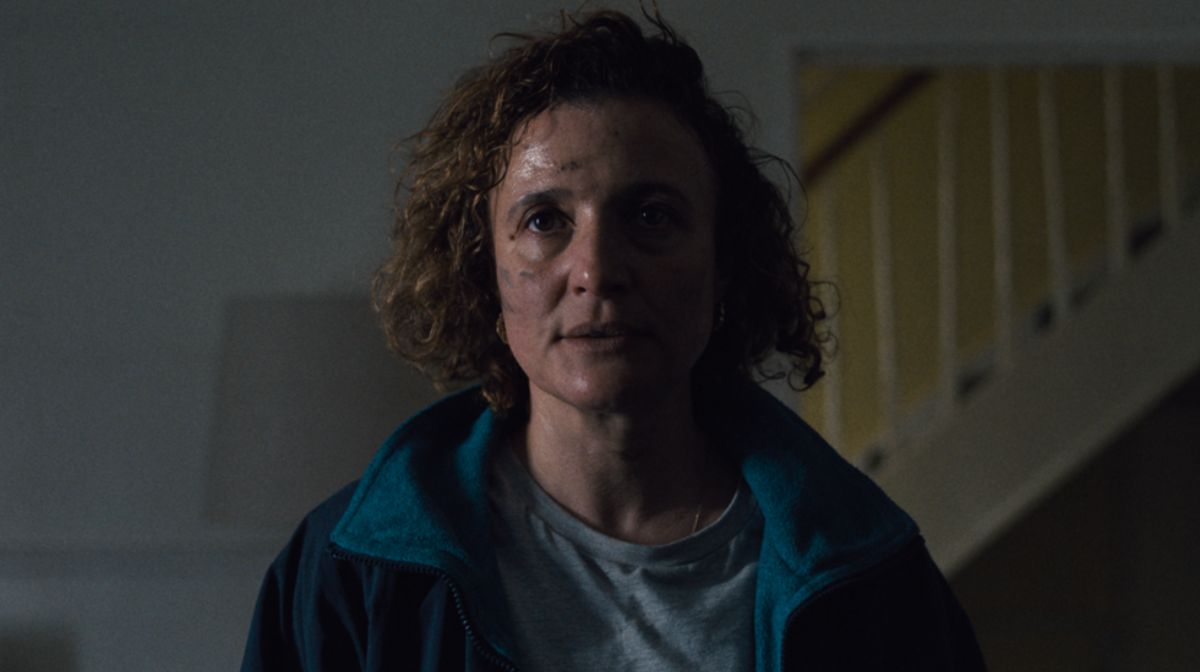
“It was a process which was always going to influence her performance, and she probably found it a bit of a nightmare at the time, but I think it helped feed into the overall quality of what she does here.”
Marshall doesn’t disagree that it helped shape her performance, with the long hours spent on set due to the limited shooting days only increasing the intensity.
She told Zavvi: “I was quite separate from Aston, as filming occured in two separate households, which did make me feel quite alone as they were all together. It just added to my character's sense of claustrophobia, and the way she’s straining to get out of there; the shoot was only two weeks, which meant long working days where I was mostly cramped inside this small house.
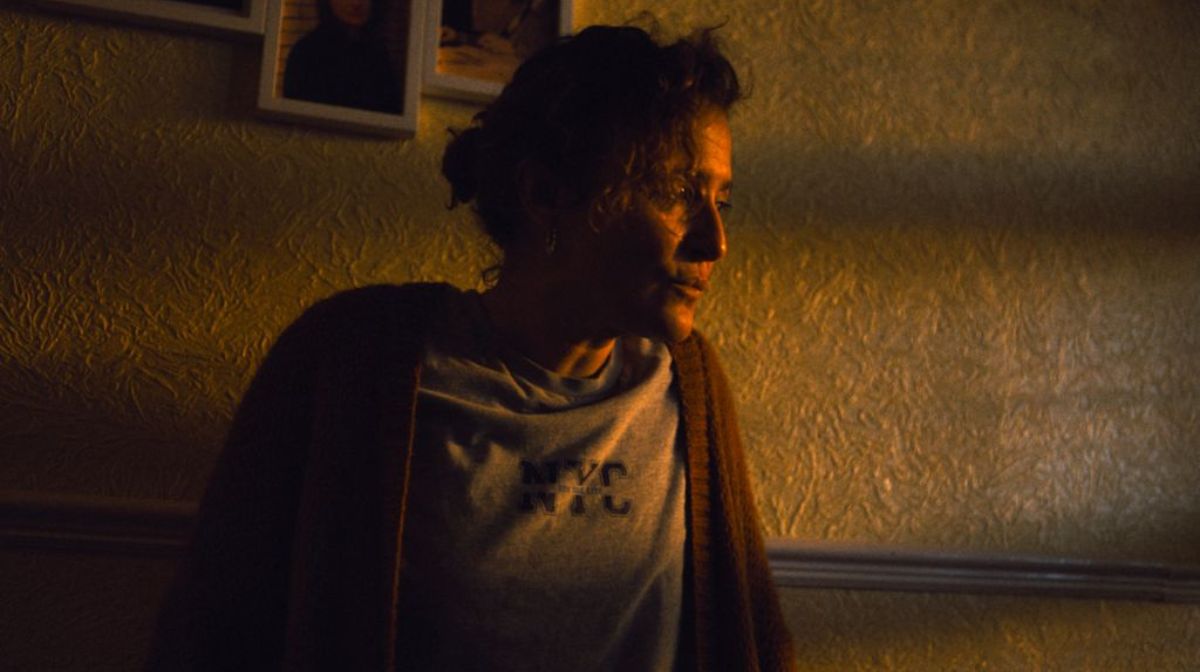
“It worked well for the scenes where we encounter each other. Not being able to pal out too much on set helped build the distance you see between them.”
Because so much of her character’s psychological unravelling happens whilst she’s alone in the house, Hart’s screenplay wasn’t particularly dialogue driven. The finished film is a visceral experience, meant to be heard with the best sound system you can find – but when reading it for the first time, it read like an intimate chamber piece, closer to a stage play than a tense cinematic thriller.
Marshal explained: “There’s not huge amounts of dialogue in the screenplay; there are multiple pages in a row where the story is told through stage direction only. It would be interesting to go back and read it now, because the music is such a big part of the story, and you don’t have that as a reference point for the character’s transformation on the page.
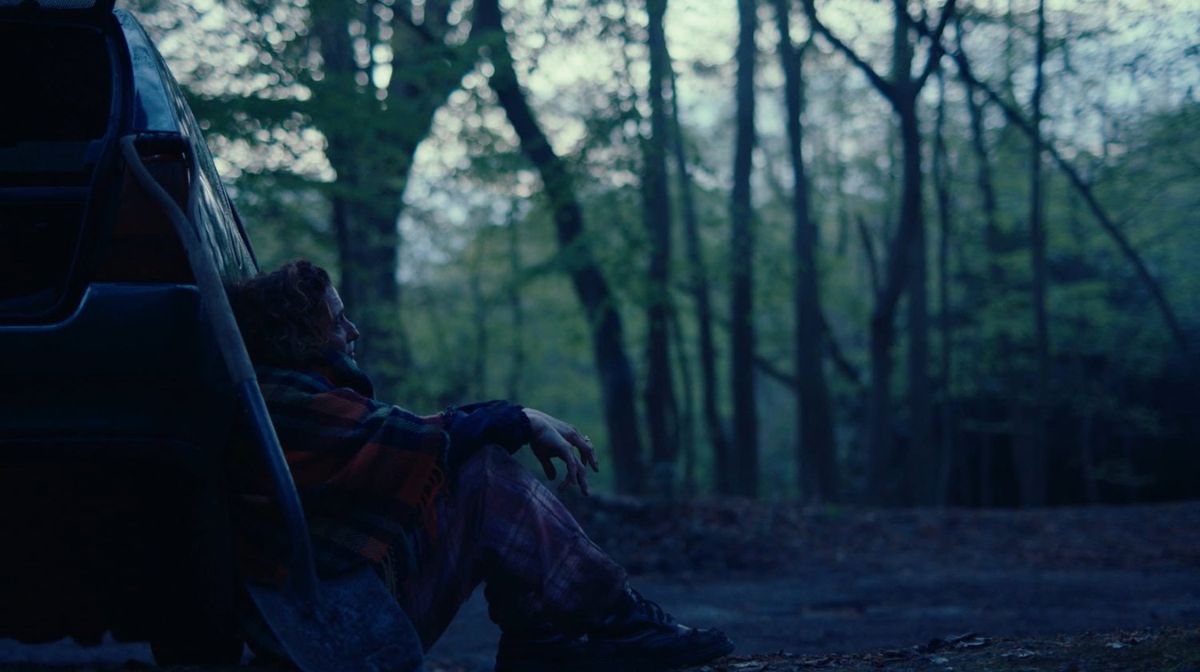
“I knew I wanted to work with Jed after being impressed by his short film Candy Floss, which I thought was a brilliant work. But it was talking to people about this project, and hearing everyone I spoke to telling me about their own bad experience with a neighbour, be it music blasting all night or someone doing building work too early, I realised there was a universal appeal.
“Being interrupted from a peaceful night’s sleep and having your life ruined because you can’t rest? That’s something we can all relate to.”
However, whilst her character is in the right here, you can’t shut out the fact that many people who do complain about noise can be, well, Karens who love moaning for the sake of it, ready to sound off if something is even a fraction of a decibel louder than it should be for a split second.
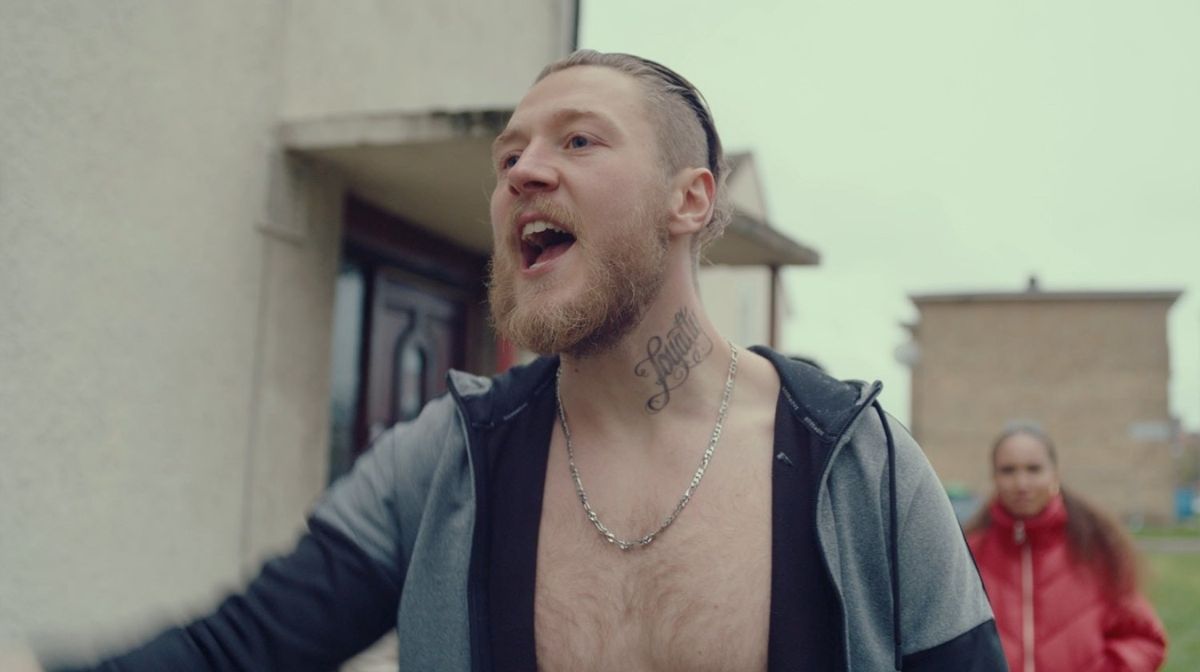
You couldn’t accuse Marshal’s character Nicky of this, which the actress believes is a more accurate representation of having to talk to your neighbours. In real life, very few people want to go out of their way to complain, and they will hold out on bringing anything up until it can’t be avoided any longer.
“I had a friend staying at my house once when I was away for a couple of nights, and he said that he’d had a word with my neighbours as they’d had a loud party – I was shocked that anybody would do that, I went over to say sorry to them the second I found out. You don’t want to complain about a party, as they might be on your case when you next have one!
“Nicky doesn’t complain either, as she thinks they’re just having a moving in party first, and you get to see her patience shredded as the days pass by and you realise that’s not the case. For me, the saddest thing in the movie is where she goes to her neighbours for help and none of them want to – it shows that people are more likely to avoid complaining just to keep the peace, even in the worst of circumstances.”
To make matters worse for Nicky, she’s a care worker, given no time to do anything other than sleep between each overlong shift she’s called in for.
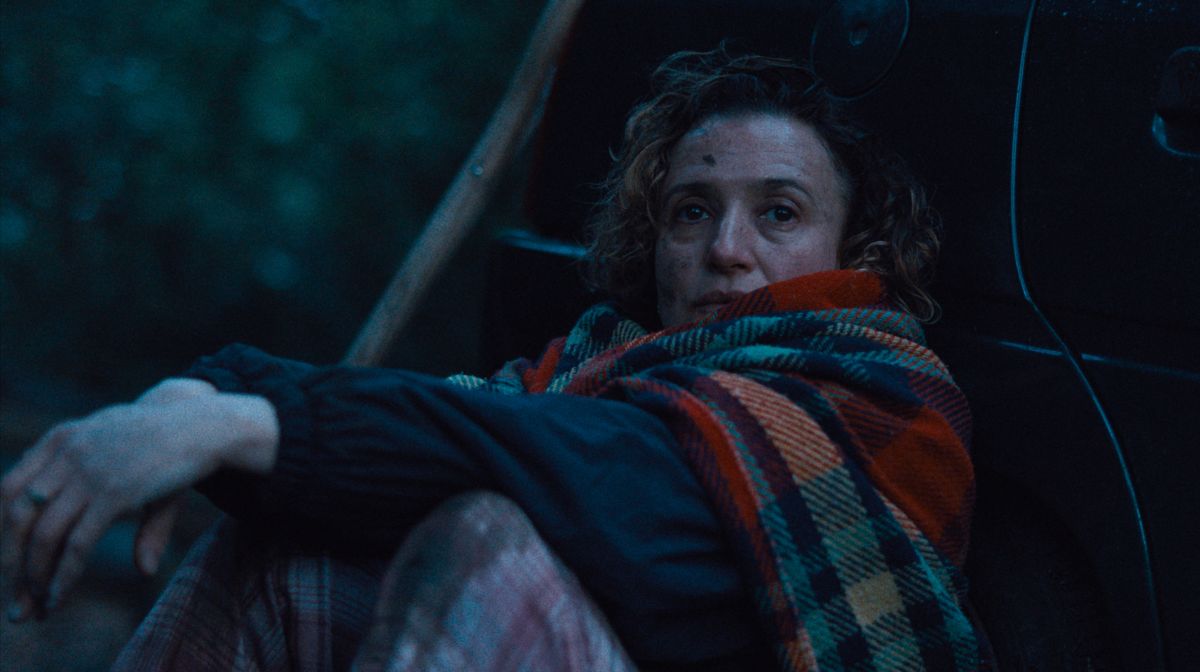
“My mum used to be a care worker when I was growing up, so those struggles were familiar to me”, Hart explained. “I wanted to create a character who stood in contrast to Deano; a genuinely caring person who you immediately respect when she’s introduced, as she’s soldiering on through a tough job.
“We wanted Deano’s presence to be the cherry on top of the cake of all the awful things in her life. We made sure we don’t explicitly reference it, but we’ve just come through COVID, which has made care work even more horrible than before, and as she’s now an empty nester whose son has gone to university and her parents have passed away, the position she’s placed in is the straw that breaks the camel’s back.”
With the movie a film festival success – shortly after this interview, Marshal won the Best Actress prize at the Manchester Film Festival – I wondered whether Jed’s former neighbours had heard he’d written a movie about them.
“I’ll be honest”, he concluded, “I couldn’t give a f**k what they do, but I hope they don’t!”
Restless is released in UK cinemas on Friday, 4th April.

